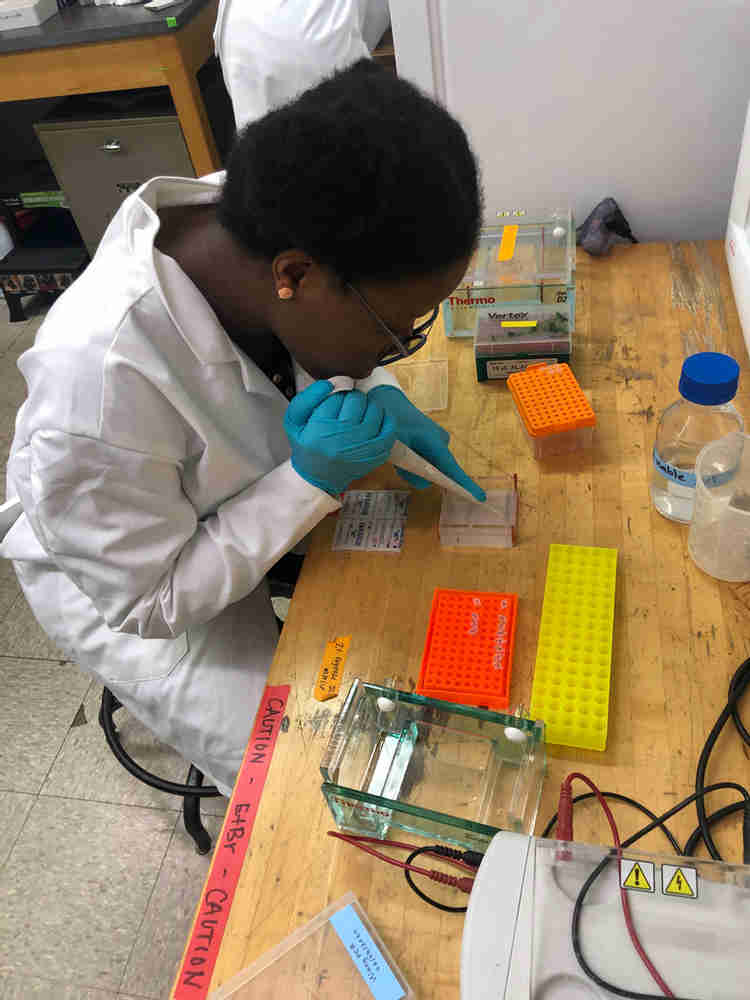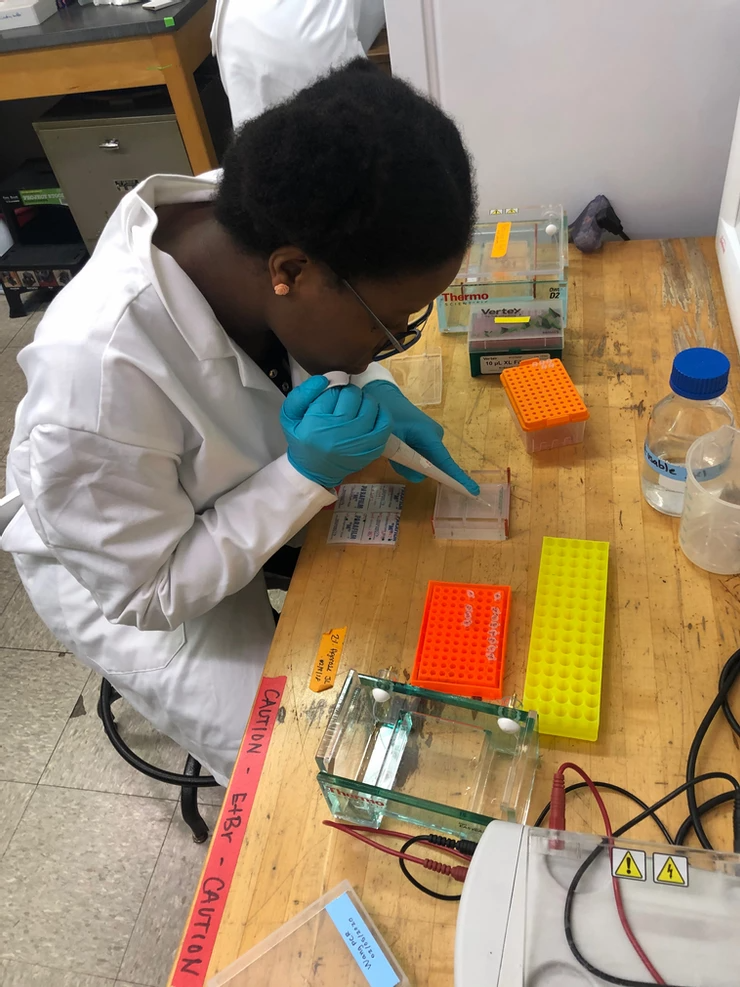
Tips for surviving your first year of graduate school
Hi everyone! My name is Josette McLean and I just completed my first year as a master’s student at Hampton University. Last month we learned about finishing our degrees, but this month, we're going to be talking all about starting our degrees! I’m going to be sharing some (hopefully) useful advice on how to not only survive, but to thrive as you begin your graduate journey.
- To start things off, grad school is not college! One of the biggest lessons I’ve learned this year is the importance of time management and prioritizing tasks. So my first piece of advice, is that at the beginning of the semester, do a thorough review of your syllabi, upcoming assignments, thesis deadlines and other general requirements. Acutely assess the span and time commitment that each task requires and set daily time segments to complete tasks in each of these assignments. This gradual chipping away at these assignments will have big pay offs when the semester becomes crazy and chaotic, leaving you less stressed and more organized to tackle (almost) anything that comes your way. As an undergrad, there were times when I procrastinated and left assignments and studying until the deadline to complete, and I still got an A. In grad school, I’ve learned that assignments require effort and adequate preparation in order to excel. Cliché, but a very important lesson nonetheless!
- This is the beginning of your professional career, so give your best effort towards everything that you do! You’re not only building your reputation but establishing your brand, as a researcher, policy connoisseur and/or environmental advocate. The people that you work with now will become your future colleagues and collaborators that you will rely on, and require recommendations from. Leave a great impression!
- Join clubs, and accept leadership positions! It may be tempting to think that you won’t have time, but extracurricular activities will help you further develop your time management skills, and give you a break from your academic work. Another plus is that looks really good on your CV. But at the same time, don’t over commit! Choose 1 or 2 clubs to commit to, so that your academics don’t suffer because of it. (*shameless plug* the SWS Student Section governing board will soon be announcing available board positions, and you can apply now to be a section delegate! )
- Another skill that goes hand in hand with time management is multitasking! This is one area that I have improved tremendously during this past year. I’ve had a million different things thrown at me, from studying for exams, to mentoring high schoolers, to applying for scholarships, making time to conduct research, and preparing for and attending scientific conferences - whew! So be prepared to feel overwhelmed at times and out of your comfort zone, because in these moments you are growing and stretching, and you’ll be much better off because of these experiences!
- You won’t be perfect or as effective as you’d like to on some days, and that's okay! Don’t be too hard on yourself. Celebrate the small wins as you aspire towards larger ones. Accept shortcomings humbly and gracefully, understanding that it is all part of the journey and you’ll eventually be stronger because of it. In fact, you’re more than likely doing better than you’re giving yourself credit for. Learn to embrace the ups and downs of the journey. Don’t let a success or a failure significantly alter your temperament. Take everything one day at a time, and you’ll look back and be amazed at how far you’ve come and how the time has flown by!
- Another quintessential aspect of grad school is work/life balance. It is of the utmost importance that you carve out some time dedicated to yourself and your mental well-being. Whether that be working out, or watching a movie, or enjoying your favorite ice cream. By taking a moment to breathe and de-stress, you can once again rededicate yourself fully to the tasks at hand. This will help prevent that unwelcome feeling of burnout and allow you to see the big picture that you are more than just a graduate student - you’re also a regular human being. Strive to not be completely consumed by the graduate life, and take the time to call family members and friends. Personally, talking to my family and friends helped me remember who I am, why I decided to pursue higher education, and my long-term goals. Having this wider perspective is essential because it is easy to become pigeonholed into the rigour of day to day assignments and research.
- Lastly, in grad school, you have a level of autonomy that will likely surpass that which you experienced during undergrad, and your success really does rely heavily upon you (with the guidance of your advisors, of course). So set your goals, work hard towards them, give your 100% best effort and don’t forget to have fun!
Hopefully this was helpful! If you have any questions or comments feel free to reach out to me at josette.mclean@my.hamptonu.edu.
About the Author
Josette McLean is an environmental scientist at Hampton University entering the final year of her Master’s Degree. Her thesis seeks to shed light on the prey preferences of Pacific lamprey (Entosphenus tridentatus) by using molecular techniques to extract and identify DNA in their gut contents. She is also the graduate student representative of the SWS Student Section. You can follow her on Twitter, or reach out to her directly at josette.mclean@my.hamptonu.edu.



